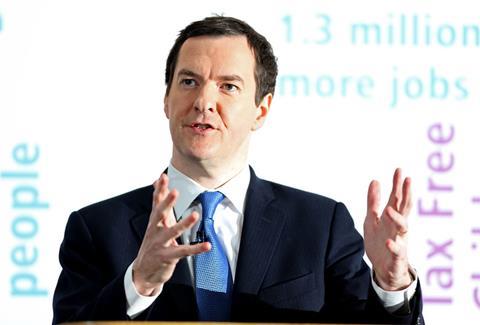Body calls for support for first time buyers
Only the top 30% of earners are able to buy a home, according to research from the Home Builders Federation (HBF).
The organisation has blamed rising house prices and mortgage costs, as well as a lack of government support, for the declining accessibility of the housing market, particularly for younger households.

The government’s most recent scheme to support buyers onto the housing ladder, Help to Buy, closed in 2022.
At that point a two-income household needed £25,000 per person to afford a new build, compared to £37,000 today.
According to the HBF, this price jump effectively locks out a quarter of buyers who could previously have afforded to purchase.
“The lack of affordable mortgage availability and support for buyers has created a significant barrier between aspiring homeowners and their first step onto the ladder,” said Neil Jefferson, chief executive officer at HBF.
“For many, in particular young people. homeownership is no longer just difficult; it is impossible without support.”
“Government urgently needs to intervene and support buyers by establishing a new fair, and targeted scheme to restore affordability and access to home ownership.”
“Supporting buyers would not only provide a new generation with the benefits home ownership brings, but it would also directly lead to an increase in home building, creating jobs and boosting economies across the country.”
According to the HBF’s data, nearly all users of Help to Buy earned below £60,000 and the 85% were first-time buyers.
The scheme also yielded a £718m return on investment for the taxpayer.
However, critics of the scheme have claimed that it contributed to house price inflation and distorted patterns of development in favour of building on greenfield land.
A House of Lords built environment committee report in 2022 found Help to Buy loans inflated prices by more than their subsidy value in areas where it was needed the most.
It concluded that the money would be “better spent on increasing housing supply” directly, through local authority and housing association building projects.
The HBF has called for the introduction of a new targeted equity loan scheme for first-time buyers.
Under its proposal, deposits would be supported with a government-backed equity loan and would be funded in part by a developer fee.
The HBF’s report came as new data from analyst Glenigan suggested an improving picture for homebuilding.
In the three months to April, residential starts increased 24% quarter-on-quarter and were up 22% year-on-year.
“Builders were reporting falling workloads at the end of last year, reflecting a period of real uncertainty across the construction sector,” said Allan Wilen, Glenigan’s economics director.
“However, the latest figures, particularly in residential, suggest that fortunes may be starting to turn.”








No comments yet